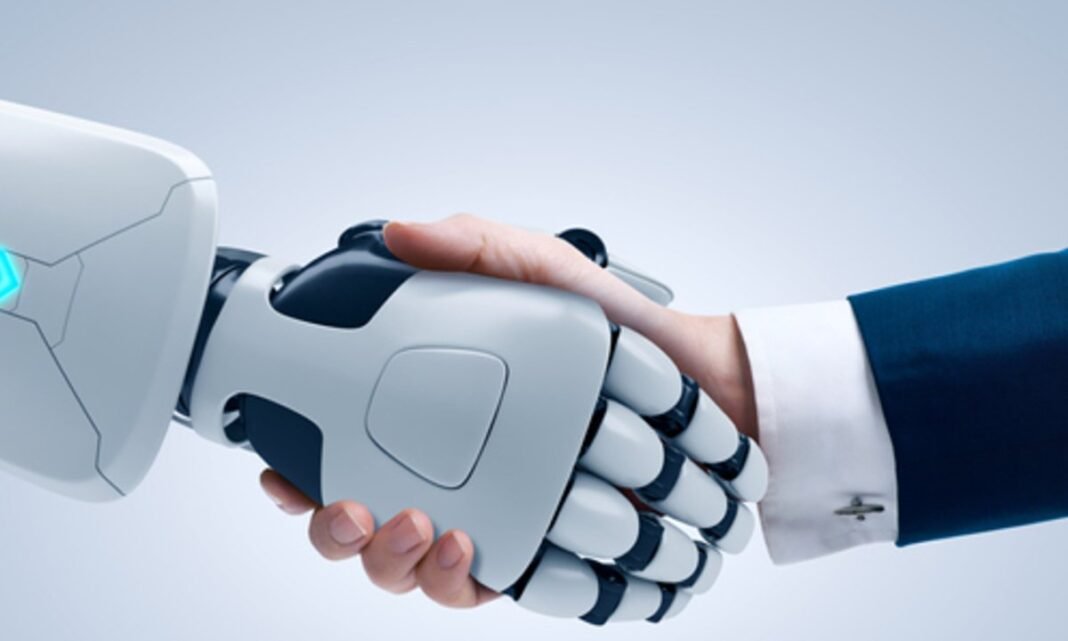In the digital age, artificial intelligence (AI) has emerged as a transformative force, reshaping the landscape of business operations across various industries. The rapid advancements in AI technologies have led to the automation of tasks, the development of sophisticated chatbots, and the creation of new opportunities that were once considered futuristic.
Enhancing Efficiency and Productivity
Automation, one of the cornerstones of AI integration, has revolutionized business processes by streamlining operations, reducing human error, and improving overall efficiency. Routine and repetitive tasks that were previously time-consuming and prone to mistakes can now be entrusted to AI-powered systems, allowing human resources to be allocated towards more strategic and creative endeavors.
For instance, manufacturing facilities have embraced AI-driven robots to perform intricate tasks, resulting in increased precision and speed. In the realm of data analysis, AI algorithms can quickly sift through vast amounts of information to identify trends and insights, enabling businesses to make data-driven decisions in real-time.

The Evolution of Chatbots: From Scripted Interactions to Dynamic Conversations
The rise of AI-powered chatbots has transformed customer interactions, elevating user experiences and enhancing customer service. Gone are the days of scripted responses; modern chatbots employ natural language processing (NLP) and machine learning to engage in dynamic, context-aware conversations. These chatbots can provide instant responses, 24/7 support, and personalized recommendations, thereby fostering customer loyalty and satisfaction.
E-commerce platforms, for instance, leverage chatbots to assist shoppers in finding products, answering inquiries, and facilitating seamless transactions. Additionally, industries such as banking and healthcare employ chatbots to guide users through account management and appointment scheduling. With continuous learning capabilities, chatbots can adapt to user preferences and refine their responses over time, creating a more personalized and efficient interaction.
Also Check: Navigating Supply Chain Disruptions: Lessons Learned from Global Challenges
Also Check: Sustainable Business Practices: Strategies for a Greener and More Profitable Future
Beyond Efficiency: Broader Implications of AI Adoption
While automation and chatbots are notable examples of AI’s impact, the broader implications of AI adoption in business are far-reaching. Strategic decision-making, enabled by AI-driven analytics, has transformed the way companies formulate business strategies. Predictive analytics models help forecast market trends, customer preferences, and supply chain disruptions, enabling proactive responses to dynamic market conditions.
AI also plays a pivotal role in risk management and fraud detection. Machine learning algorithms analyze patterns in data to identify anomalies that may signify fraudulent activities, thereby safeguarding businesses from financial losses and reputational damage.
Moreover, AI-driven insights have redefined the concept of personalized marketing. By analyzing vast amounts of consumer data, AI can tailor marketing campaigns to individual preferences and behaviors, resulting in higher engagement and conversion rates. This level of personalization not only enhances customer satisfaction but also bolsters brand loyalty.
Ethical Considerations and Future Outlook
As AI continues to evolve and permeate various aspects of business, ethical considerations become paramount. The responsible use of AI involves addressing concerns about data privacy, algorithmic bias, and job displacement. Striking a balance between technological advancements and ethical considerations remains a challenge that businesses must navigate.
Looking ahead, the future of AI in business holds promising potential. Emerging technologies such as augmented reality (AR) and virtual reality (VR) are poised to further transform customer experiences, offering immersive interactions and new avenues for engagement. Additionally, AI’s role in innovation, from drug discovery to product design, is likely to accelerate, propelling industries forward.
Conclusion
The rise of AI in business is a transformative journey that encompasses automation, dynamic chatbots, and a host of other applications that redefine the way companies operate and interact with their stakeholders. conversations.
.
.
.
All images are taken from Freepick, Unplash, Pixabay, Internet & from respected Companies

